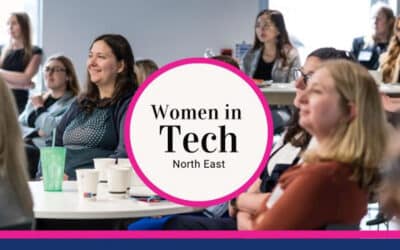It’s time to investigate why so much of what’s talked about and award-winning in agencies hasn’t seen the light of day, let alone made a client any money.
Jonny Longden, Conversion Director at Journey Further, explores why so much of what gets commissioned isn’t really about results – and asks whether a more scientific approach in business is what needed.
It seems that almost every week I open LinkedIn to be faced with yet another video demonstration of some cool looking, and yet utterly pointless, Augmented Reality application. The post goes viral and overflows with hundreds of comments from people awe-inspired by how great it is, and yet nobody seems to stop to ask – what’s the point?
Of course, there are some genuinely useful applications for AR, but most are terrible. Why do I want to see a pair of trainers floating in my living room, rather than just on a website? Why do I want to see information about a product floating next to the product, instead of just reading it on a page? Why does a product need to pop up out of a magazine page, when I’ve already had to go to my phone and could just as easily be looking at a 3D image of it on a website?
The source of the issue
What’s going on here? Who makes these things and who pays for them? What did they think the benefit was? Sometimes they are clearly just prototypes, but more often than not they are branded apps intended for proper use in the market.
In many, but not all, cases, this can be seen as a symptom of pure selfishness and ego on the part of agencies. They need something cool which they can use to demonstrate their capabilities, and so they manage to persuade their clients to commission it, despite the fact that there is no benefit for either the client or their customers.
There are numerous real motivations behind this kind of behaviour:
- The agency needs case study material in order to help their PR and new business efforts
- They specifically want to win an industry award of some kind
- They’re trying to attract and retain a certain calibre of employee, and need to have ‘cool and interesting’ projects for them to work on
- Individual people within the agency want to build their own portfolios and CVs and steer the work towards things which benefit their own personal branding
If you’ve ever attended industry awards (especially the ones focused on creativity and innovation), you’ll have been wowed by all kinds of cool stuff which you then never ever see again in the public domain. It’s the world’s worst kept secret that much of what gets submitted for these kinds of awards is fake, or at least made solely for the purpose of winning the award, with no intention of ever taking it to market.
But whilst this is conspicuous in the creative world, it’s also happening on a more subtle level in almost all agency-client relationships, with the possible exception of those focused specifically on commercial performance targets.
Both sides on the same track
And yet here’s the nub – it isn’t fair to lay the blame for this entirely on agencies. The most cynical way to look at this is agencies conning clients into doing stuff which doesn’t benefit them, but I don’t believe that’s the case. Mostly the clients are themselves complicit in this and have similar motivations to the agency.
In many client-side environments, the measure of whether someone is effective in marketing is their ability to deliver ‘cool stuff’ which gets the business talking internally, and not the commercial impact of the campaign. For many in these environments, their career hinges on their own ‘portfolio’ and internal PR just as much as it does for someone on the agency side.
So even though there probably isn’t an explicit conversation between the client and agency about producing stuff for these ends, they’re nevertheless often both in some way motivated by ego more than the commercial or customer experience objectives of the work, and this is indicative of a deeper problem in business, of which what I’m describing is really just a symptom.
The hierarchical nature of business, whereby the higher someone climbs the ladder, the more they get paid, means that people tend to get hired and remunerated on the nature of their past experience. This means that there is enormous value placed on their opinions and powers of intuition and, ultimately, their ability to create and do ‘stuff’ which nobody else in the business could do.
The culture this creates is the reason why trying to become data-driven is so challenging. It’s the reason why most decisions are based on opinion and intuition. It’s also the reason why businesses refuse to embrace failure and learning and instead spin every project into a fake success.
More importantly, and getting back to the original point, it’s what drives the relationship with agencies, but it also permeates the internal cultures of those agencies as well. The career path in creative is based on the ability to produce or work on the ‘coolest’ projects, and not on the ability to deliver creative that truly works commercially, which is often pretty boring in comparison to the award-winning stuff.
The career path in software engineering is based on the ability to do cool stuff with the newest and most interesting technologies, and not on any notion of accountability to business benefit.
So yes, many agencies are often too selfish, but this mostly isn’t a deliberate or conscious choice. The fact is that business culture itself is inherently selfish and egotistical in the way it favours and rewards individual opinion as opposed to actual efficacy of output.
The scientific method
The answer to this is a different business culture; one which embraces the scientific method rather than individual achievement. Scientists are not successful because of their subjective opinions and intuition. Science is not something that has brought about the greatest achievements of humanity by being ‘cool’ – it works and delivers value due to a strict scientific method.
Problem articulation, observation, hypothesis, experimentation, adaptation. This is a process of innovation which can be successfully replicated in all areas of business if you know how. It’s no accident that many of the most successful businesses in the world today already embrace this culture. Hopefully the rest of the world can gradually open its eyes.
As the physicist Richard Feynman said about the scientific method: “It doesn’t make a difference how beautiful your guess is. It doesn’t make a difference how smart you are who made the guess, or what his name is. If it disagrees with experiment, it’s wrong.”











